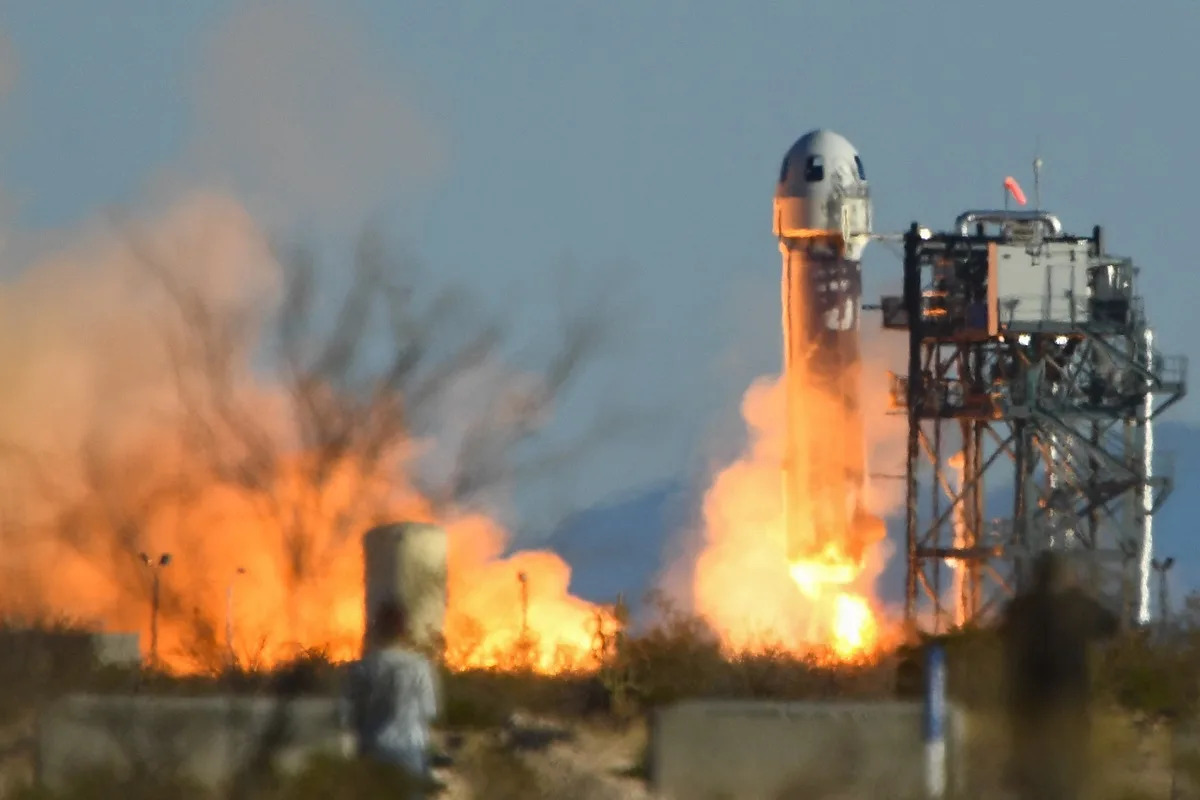Frank Landymore
Wed, August 23, 2023

Gassed Up
Things are getting kind of gassy at Blue Origin, Jeff Bezos' space tourism firm.
Case in point, Bloomberg reports that a Blue Origin facility in West Texas is regularly emitting so much methane during recent rocket tests that plumes of the stuff are being spotted from space.
The unexpected detection was made in June by Carbon Mapper, a nonprofit that scans for greenhouse gas emissions across the globe.
Using data gathered by an instrument on board the International Space Station, Carbon Mapper estimated that about 1.5 metric tons of methane were spewing out of the Blue Origin facility per hour, appearing as a conspicuous cloud on its website's map.
Without more data, there's no telling how long those emissions lasted.
Situation Normal
It's certainly no secret that methane figures into Blue Origin's plans. Its flagship rocket engine, the BE-4, uses what's known as liquefied natural gas (LNG) for propulsion, made almost entirely of methane. And according to a company spokesperson, these emissions are par for the course.
"We frequently transfer LNG from our suppliers into storage tanks at our engine test stands," the spokesperson told Bloomberg. "Everything operated normally."
Until now, though, the Bezos venture's methane footprint has remained a relative unknown. Even with Carbon Mapper's latest findings, we can't narrow down its emissions for sure, but an air permit application spotted by Bloomberg may help clue us in.
According to the document, filed with the Texas Commission on Environmental Quality (2020) in 2020, Blue Origin estimates that it will emit around 3.4 million cubic feet of LNG per year, or roughly 60 tons of methane.
Climate Driver
Methane is a greenhouse gas and a significant driver of climate change. According to the International Energy Association, methane alone is responsible for nearly a third of the Earth's warming temperatures.
Blue Origin emitting several dozen more tons of the stuff annually may not be that much in the grand scheme of things — globally, the energy industry released 135 million tons of the stuff in 2022 — but remains worth scrutinizing nonetheless.
For one, it is far from the only space firm to use methane as a rocket propellant — SpaceX and its troubled Starship is a notable example. In fact, methane is increasingly viewed as the ideal rocket fuel by space firms due to, among many factors, its high density, stellar performance, and cost efficiency. We can expect a lot more methane-powered launches in the future, in other words.
So while space travel's environmental impact is currently believed to be relatively insignificant, there's reason to suspect that at current rates of the industry's growth, it's poised to become a massive polluter.
No comments:
Post a Comment